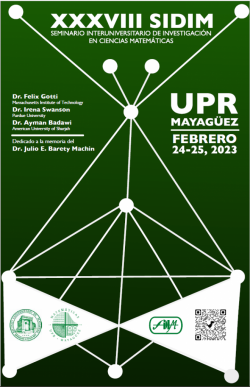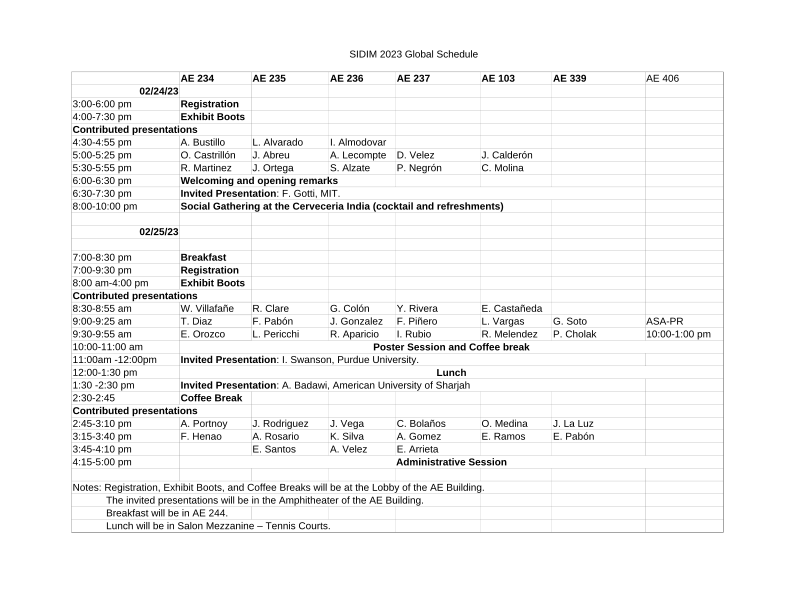The University of Puerto Rico at Mayagüez will host the XXXVIII Interuniversity Seminar on Research in the Mathematical Sciences (SIDIM) on February 24 and 25, 2023 at Bussines Administritation building. SIDIM is an annual gathering where researchers, professors, teachers, graduate, and undergraduate students share and discuss their recent work in mathematics and computer science. Its diverse and intense scientific program provides an interesting cross-section of the current status of mathematical research in Puerto Rico. Math faculty, students from all the higher learning institutions in Puerto Rico, and distinguished visiting mathematicians will participate in the meeting.
SIDIM’s history has been closely intertwined with the growth and development of our department. We hosted the first SIDIM and have successfully organized seven previous editions of the Meeting. We are happy to see that the efforts to promote mathematical research activity in Puerto Rico have fruitfully produced 38 uninterrupted years of SIDIM activities. After two consecutive years of virtual activities, hosting the XXXVIII edition of SIDIM is a special homecoming. We enthusiastically invite the mathematical community to join us by submitting SIDIM’s electronic registration form. General information on the organization and logistics of the XXXVIII SIDIM will be posted on this website. Additional information on the scope and history of SIDIM may be found on the Permanent SIDIM Committee webpage.


